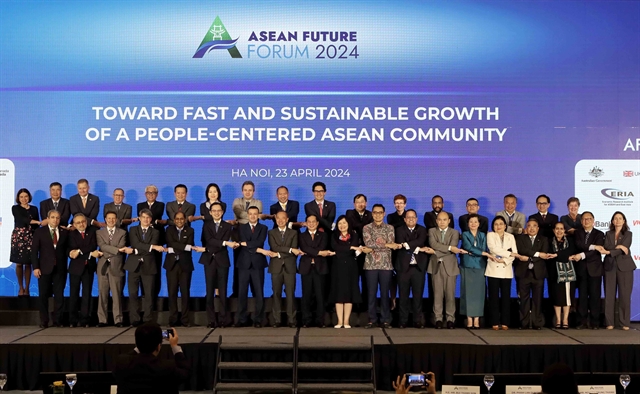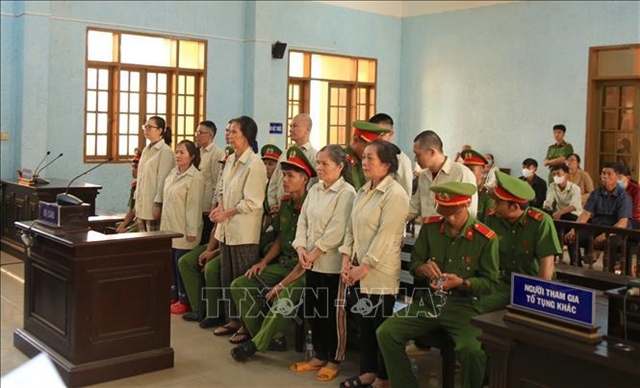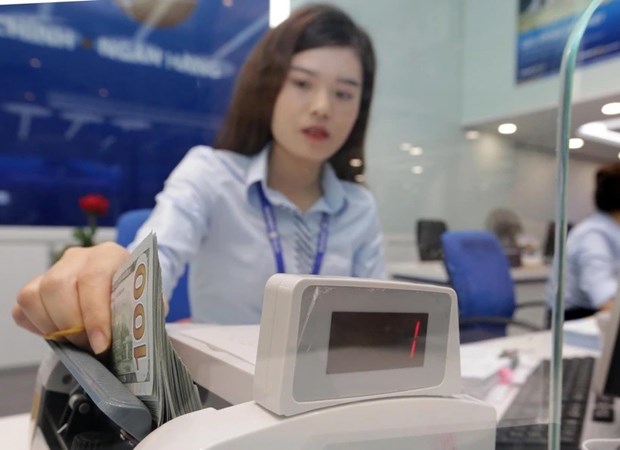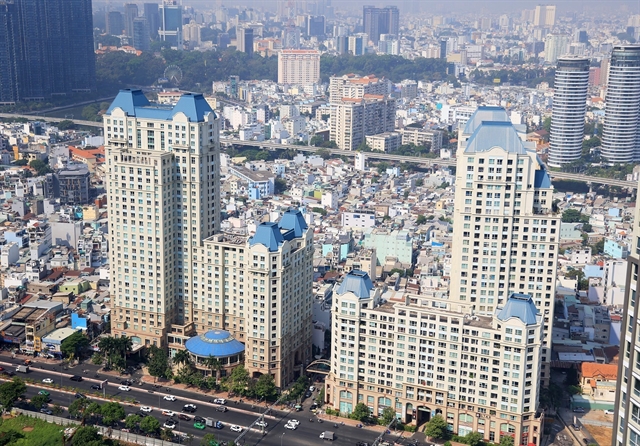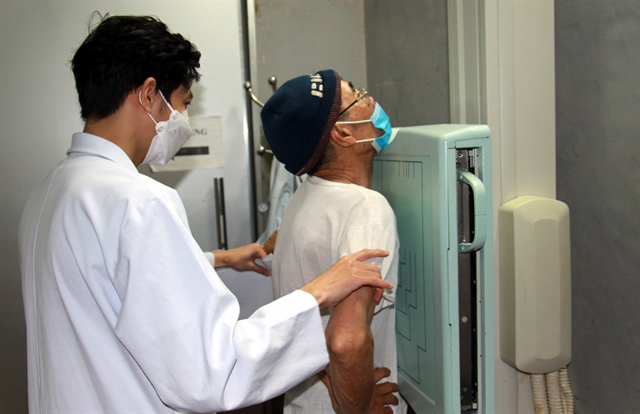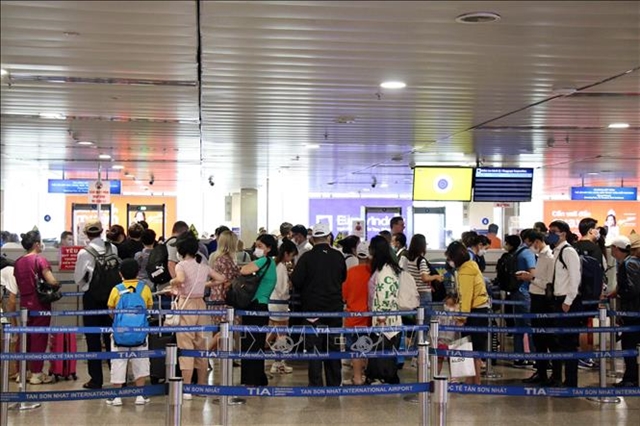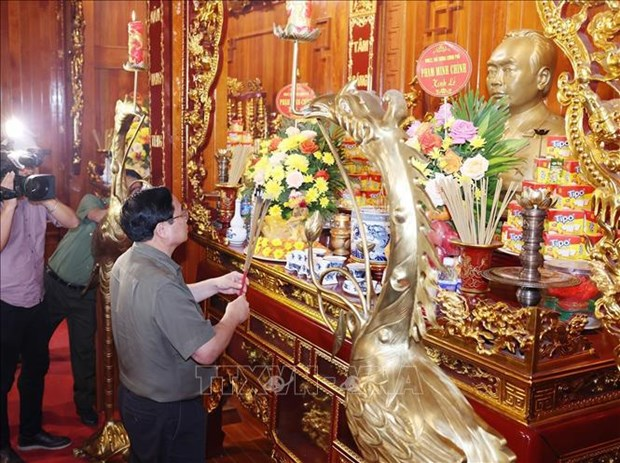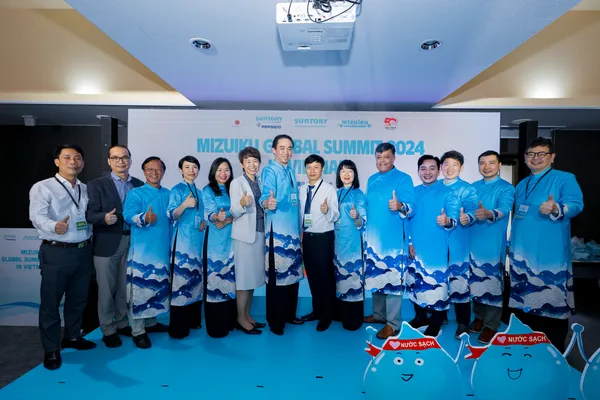 Environment
Environment
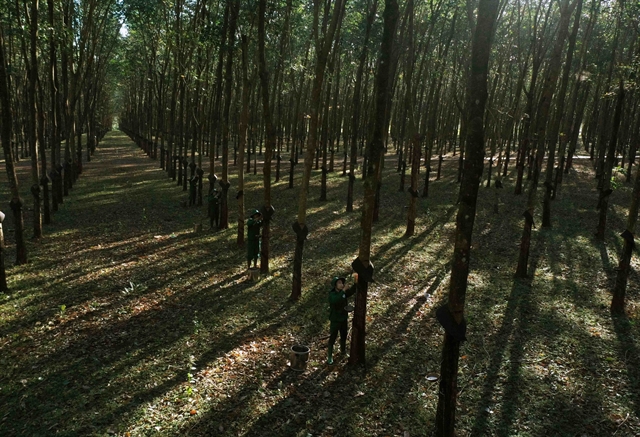
All residents in rural areas of the Mekong Delta must have access to clean water, Nguyễn Hoàng Hiệp, deputy minister of Agriculture and Rural Development, said at a seminar held in Sóc Trăng Province on Wednesday (May 27).
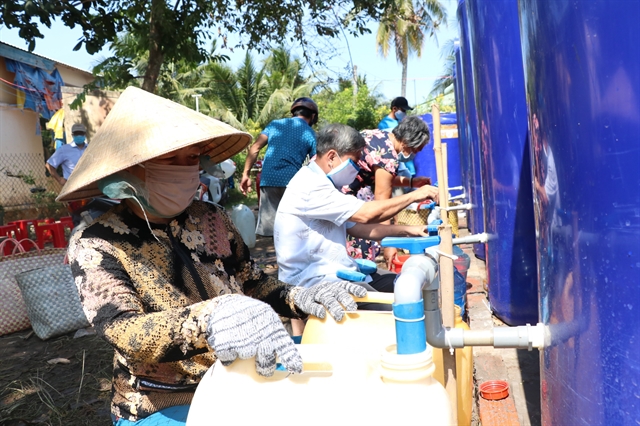
|
| Residents receive free clean water from a water supply site in Bến Tre Province. — VNA/VNS Photo Huỳnh Phúc Hậu |
SÓC TRĂNG — All residents in rural areas of the Mekong Delta must have access to clean water, Nguyễn Hoàng Hiệp, deputy minister of Agriculture and Rural Development, said at a seminar held in Sóc Trăng Province on Wednesday (May 27).
Hiệp urged the delta, which includes 12 provinces and Cần Thơ City, to improve water quality and to encourage residents to use water efficiently.
About 96,000 households with a total of 430,000 people in rural areas in the delta face clean water shortages during the dry season because of saltwater intrusion, deteriorating water supply systems, and declining groundwater resources.
Most of the households live in Bến Tre, Sóc Trăng, Kiên Giang, Cà Mau, Bạc Liêu, Long An and Trà Vinh provinces. The provinces have set up free water supply sites and transported clean water from other places to these households.
Hiệp said that the Ministry of Agriculture and Rural Development (MARD) over the long term would work with other ministries to build irrigation projects to solve water shortages during the dry season.
The delta should also repair existing concentrated water supply projects, he said.
In the next three years, delta provinces should expand tapwater pipe networks, drill concentrated bored wells in areas with no access to tap water, and build water containers for the 96,000 rural households without access to clean water, Hiệp added.
Ninety-eight per cent of the delta's 13 million rural residents have access to hygienic water. Of that figure, 55 per cent have access to clean water that meets national standards, according to MARD.
About eight million rural residents in the delta have access to water from 3,858 concentrated water supply projects, while five million rural residents use water from wells, bored wells, rainwater or other sources.
Investment
Seminar participants said that more investment was needed to build water supply projects and water reservoirs.
Lương Minh Quyết, director of Sóc Trăng Province’s Department of Agriculture and Rural Development, said that water shortages were caused by low rainfall and the low flow of the Mekong River during the dry season.
The lack of funds for new water supply projects is another cause. To provide clean water to all households in Sóc Trăng Province, more than VNĐ1 trillion (US$43 million) is needed to build water supply projects.
Tô Quốc Nam, deputy director of Cà Mau Province's Department of Agriculture and Rural Development, said the province faces a similar situation and that rural residents live in scattered areas, which makes investing in water supply projects more difficult.
Only about 18 per cent of Cà Mau’s population have access to concentrated water supply projects, the lowest rate in the delta, he said. The remaining use rainwater or bored well water.
To reduce the exploitation of groundwater, Nam has petitioned MARD to take water from the Hậu River, a tributary of the Mekong River, to Cà Mau. Cà Mau is the only province in the delta that cannot access water from the Mekong River. — VNS

